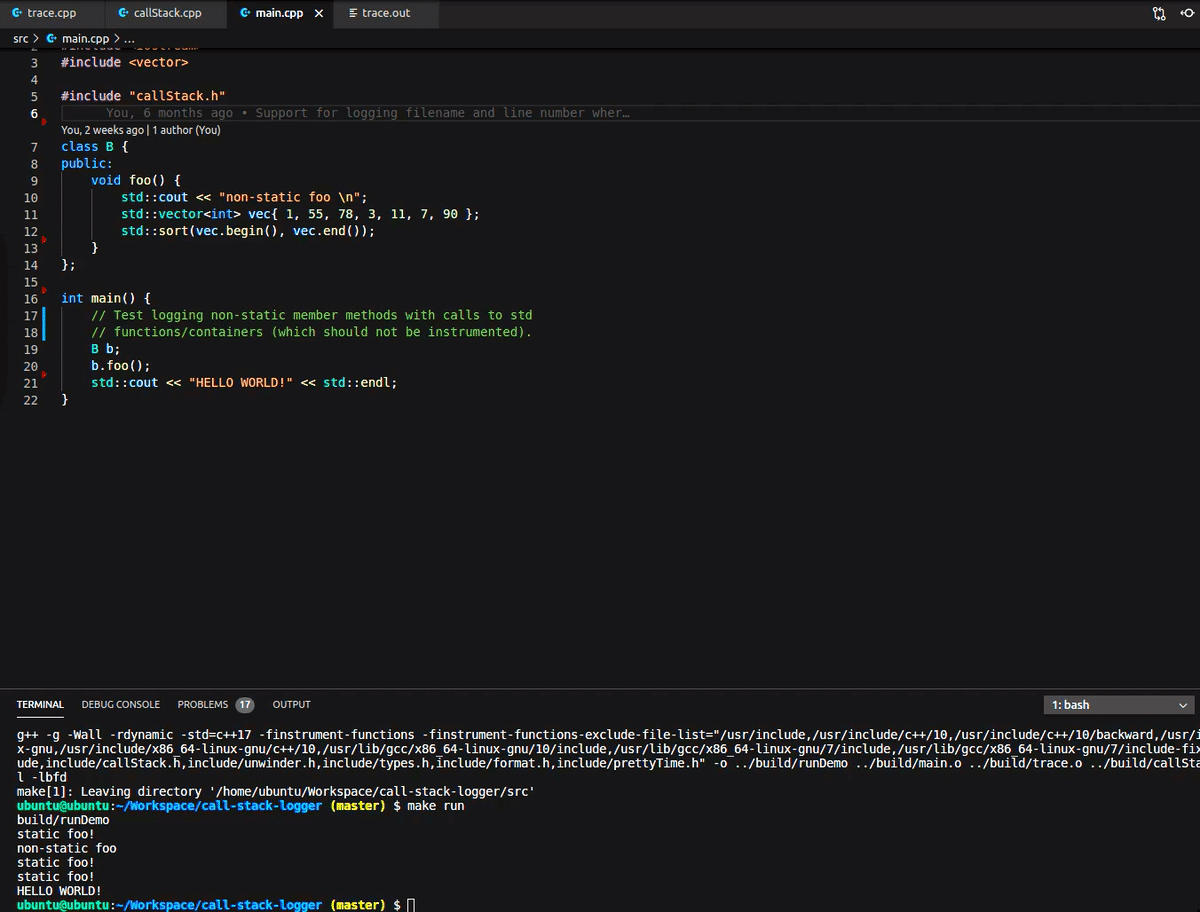Call Stack Logger uses function instrumentation to facilitate logging of every function call. Each nesting adds an ident, whereas returning from a function removes it. As the result call stack tree is produced at the runtime giving knowledge of the actual program's flow of execution.
Here is the article on dev.to describing the details of the project, its aim and motivation
behind it:
Call Stack Logger - Function instrumentation as a way to trace program’s flow of execution
It is required in order to get access to BFD (Binary File Descriptor library) necessary to get information about object files and manipulate them.
sudo apt-get install binutils-devgit clone https://github.com/TomaszAugustyn/call-stack-logger.git
cd call-stack-logger
# Create build folder and go there
mkdir build && cd build
# Configure cmake with default logging
cmake ..
# or for extended logging you can play with these flags
cmake -DLOG_ADDR=ON -DLOG_NOT_DEMANGLED=ON ..
# or to compile your application with disabled instrumentation (no logging)
cmake -DDISABLE_INSTRUMENTATION=ON ..
# Build
make
# Build and Run (as the result trace.out file will be generated)
make rungit clone https://github.com/TomaszAugustyn/call-stack-logger.git
cd call-stack-logger
mv Makefile_legacy Makefile
mv src/Makefile_legacy src/Makefile
# Build with default logging
make
# or for extended logging you can play with these flags
make log_with_addr=1 log_not_demangled=1
# or to compile your application with disabled instrumentation (no logging)
make disable_instrumentation=1
# Build and Run (as the result trace.out file will be generated)
make runCall Stack Logger is a single-copyright project: all the source code in this Call Stack Logger repository is Copyright © Tomasz Augustyn.
As copyright owner, I dual license Call Stack Logger under different license terms, and offers the following licenses for Call Stack Logger:
- GNU AGPLv3, a popular open-source license with strong copyleft conditions (the default license)
- Commercial or closed-source licenses
If you license Call Stack Logger under AGPLv3, there is no license fee or signed license agreement: you just need to comply with the AGPLv3 terms and conditions. See LICENSE_COMMERCIAL and LICENSE for further information.
If you purchase a commercial or closed-source license for Call Stack Logger, you must comply with the terms and conditions listed in the associated license agreement; the AGPLv3 terms and conditions do not apply. To purchase commercial license please contact me via email at t.augustyn@poczta.fm in order to discuss requirements and formulate a commercial license that best suits your needs.
The Call Stack Logger software itself remains the same: the only difference between an open-source Call Stack Logger and a commercial Call Stack Logger are the license terms.
